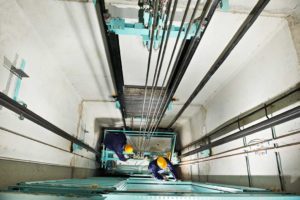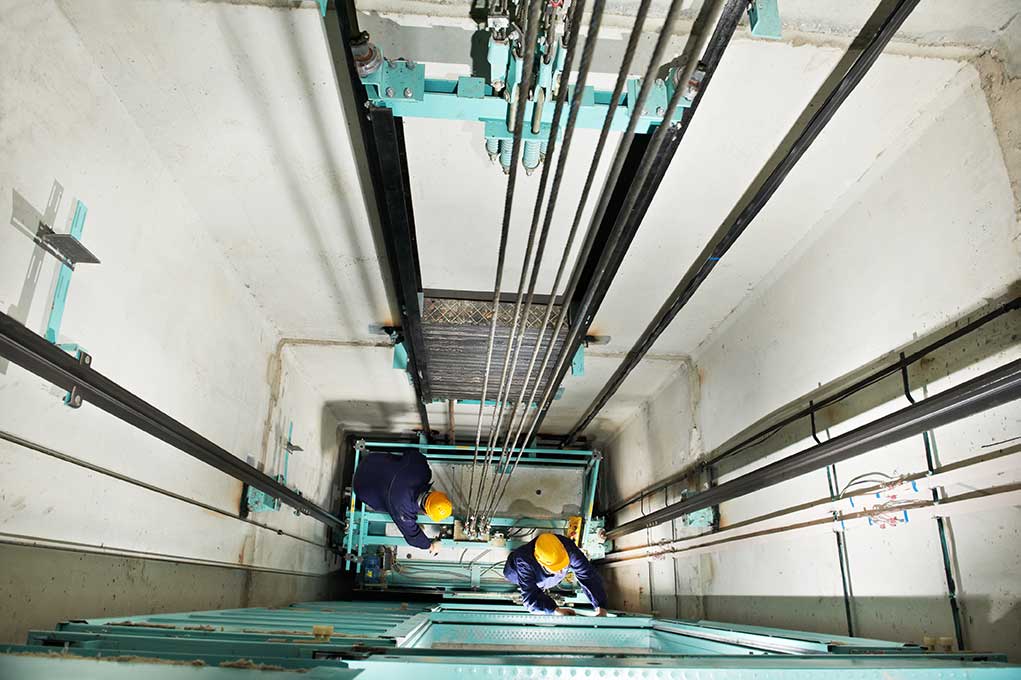Disclaimer: The information on our website is provided for general information purposes only. We make no representations or warranties of any kind, express or implied, about the completeness, accuracy, reliability, suitability or availability with respect to the website or the information contained on our website for any purpose. Any reliance on such information is therefore strictly at your own risk and we are not liable for any damages or losses arising out of or resulting from your reliance on any information contained on our website.
Elevator installers and repairers maintain, install, and fix elevators, moving walkways, stairlifts, and escalators. Also, there are two types of elevator installers and repairers. One type specialize in fine-tuning the equipment after the installation and assuring required specifications are met. The other type is an assistant mechanic that has completed the 4-year apprenticeship program and typically works under an experienced mechanic. Watch a video to learn what an elevator installer does:
How to Become an Elevator Installer and Repairer

It is typically required for elevator installers and repairers to learn through an apprenticeship program and currently, 35 states require a license to work. A high school diploma or equivalent is needed. Additionally, high school students can take classes in mechanical drawing, shop, and math, so that they may be more competitive for openings in the apprenticeship program.
The apprenticeship program takes 4-years and each year requires students to have at least 144 hours of related technical instruction and 2,000 hours of paid on-the-job training. In fact, unions and some contractors offer apprenticeship programs as well. Additionally, to qualify you must be 18 years of age, have a high school diploma or the equivalent, and be physically able to do the job. After elevator installers and repairers are fully trained they are expected to stay current with technological developments during their careers. Since 35 states require licensing, you should check the specific requirements for the state they will be working in.
Job Description of a Elevator Installer and Repairer
The duties of an elevator installer and repairer usually include reading blueprints to determine what equipment is needed for the job and to locate malfunctions in the switches, brakes, motors, and control systems. They may install or repair cables motors, elevator doors, and control systems.
Elevator installers and repairers connect electrical wiring to control panels and electric motors. They also use test equipment to diagnose problems and adjust safety controls, counterweights, and door mechanisms. Additionally, they test newly installed equipment to ensure all specifications are met and that the elevator meets safety regulations. Elevator mechanics frequently work in elevator machine rooms that are located at the top of elevator hoist-ways. Repairers often work overtime and may possibly be required to be on call 24-hours-a-day.
Elevator Installer and Repairer Career Video Transcript
From moving walkways and escalators at the airport… to skyscraper elevators… and even chair lifts at ski areas… elevator installers and repairers keep people moving to where they want to go. Elevator installers and repairers install, fix, and maintain lift equipment. Usually they specialize in one phase of the work: installation, maintenance, or repairs. Elevators and lifts require maintenance such as oiling and greasing parts, replacing worn components and adjusting equipment, including computerized control systems. The work requires the ability to troubleshoot, based on a strong knowledge of electronics, hydraulics, and electricity.
Elevator installers and repairers work in crews for major repairs such as replacing cables or bearings. They also ensure that equipment complies with safety regulations and building codes. Most elevator installers and repairers work for building equipment contractors. They often work in cramped crawl spaces and machine rooms… sometimes high up in elevator shafts. They often need protective equipment such as harnesses and safety glasses. Almost all work full time, and maybe on call 24-hours a day when necessary. Nearly all elevator installers and repairers learn through a 4-year apprenticeship, which requires a high school diploma or equivalent. Classes in math, mechanical drawing, and shop can be helpful. Most states require licensure.
Article Citations
Bureau of Labor Statistics, U.S. Department of Labor, Occupational Outlook Handbook, Elevator Installers and Repairers.
National Center for O*NET Development. 47-4021.00. O*NET OnLine.


